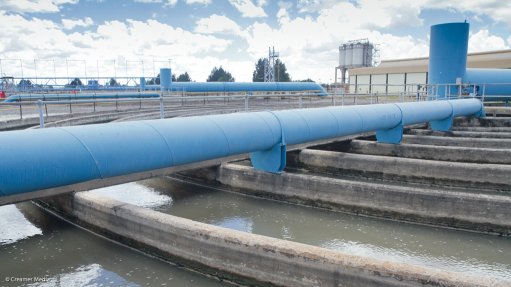
Photo by: Duane Daws
Municipalities that introduce combined heat and power (CHP) plants at wastewater treatment works (WWTW) are likely to narrow their energy consumption by some 60%, WEC Projects biogas-to-energy business unit head Jason Gifford has told the Southern African Energy Efficiency Convention, in Johannesburg.
According to Gifford, whose company built Johannesburg Water’s flagship Northern Works biogas-to-heat and -energy plant, in Gauteng, a WWTW that processed 1.5-million litres of wastewater a day had the capacity to produce 16 750 m3 of biogas a day, generating power output of some 1 530 kWe – roughly 56% of the facility’s overall energy consumption.
“Considering that municipal WWTWs across the country currently consume some 1 GWh/y of electricity, this is significant, given that the single-biggest input cost to clean wastewater is energy,” he told delegates.
Moreover, CHP plants enabled the WWTW’s critical processes to continue to operate during power interruptions.
“The bigger municipalities are very interested in the concept, [but] . . . there are a lot of constraints in the municipal sector and it’s not easy for municipalities to argue for a budget that saves money rather than spending money on something.
“The biggest problem is also determining where to get the funds for ongoing maintenance and operation,” he commented.
Most large municipal WWTWs, Gifford explained, had on-site anaerobic digesters to reduce the total organic load and stabilise the sludge before disposal – in compliance with local legislation.
CHP enabled the capture of the biogas released during this digestion period and its conversion into usable energy that could be redirected to power processes elsewhere at the facility.
A CHP plant built at a WWTW with a 1.5-million-litre-a-day capacity would likely cost in the region of R40-million, with an internal rate of return of about 25% and a payback period of about seven years.
Operational costs amounted to between 25c/kWh and 30c/kWh, including consumables and engine rebuilds, he added.